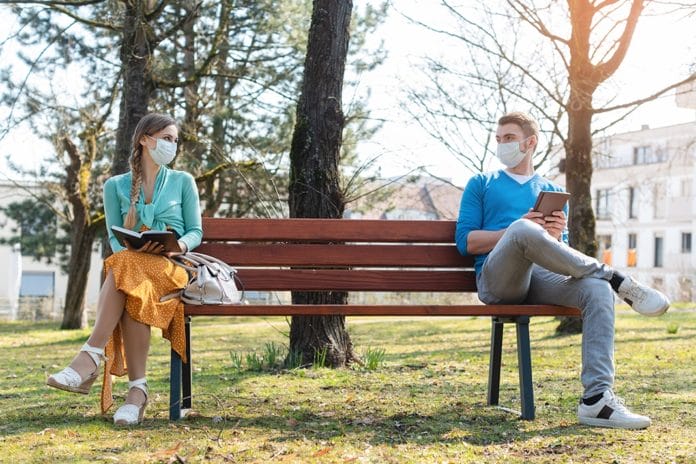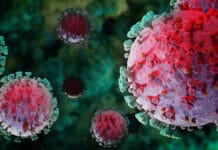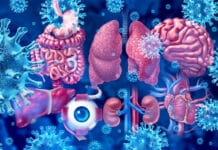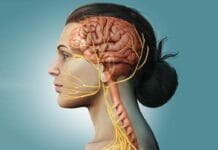Editor’s Note: Information about COVID-19 is changing on a daily, sometimes hourly, basis. We have made every attempt to ensure this article is up-to-date at the time of publication, but with the rapid changes occurring, some information may have changed since publication. Please visit https://www.coronavirus.
COVID-19 is officially taking over our lives. More so than any other disease in recent history, this one is changing the landscape of everything we know to be normal. Zika, Ebola, H1N1, HIV/AIDS, and so many others have captivated global attention, but none of them have sent us into our homes quite like COVID-19.
On March 10, 2020, Business Insider ran an article listing the top 47 most dangerous jobs for one’s health according to data procured from the U.S. Department of Labor. Interestingly, medical laboratory technicians came in at #19, and histotechnologists/histotechnicians were listed at #13.
But here is where it gets interesting: #7 prosthodontists; #5 dental assistants; #4 dental laboratory technicians; #2 dentists. And, coming in as the #1 most dangerous job? Dental hygienists.
Five of the top 10 most health-hazardous jobs were occupied by workers in the dental community. Even those working directly in the labs with diseased specimens on a daily basis didn’t break into the top 20.
Due to the high-risk of our profession, the ADA issued a recommendation on Monday, March 16, 2020, that all elective dental treatment be stopped for at least the next three weeks (until April 6, 2020). They advised that only emergency treatment be provided to patients until that time.
While this is only a recommendation, many dental offices have heeded the warning and closed their offices for routine care. On the heels of that recommendation, many states have issued mandates to the same effect, some spanning even greater time ranges. Florida officials just issued their mandate that hygienists not return to regular work until at least May 8, 2020.
The Dental Hygiene Experts
Great, so hygienists are now safe, as well as anyone can be during a pandemic. So, what now? How does a dental hygienist care for his/her community when there are no patients to treat?
- Connect. Offer to stay in touch with your practice’s patients via social media or email. Consider doing a video series on health topics to keep your patients motivated while they are at home. Quick clips on interdental cleaning, brushing, healthy snacking, product demonstrations, or anything from the many educational topics one would normally cover chairside could also be useful.
Even more useful would be demonstrations on how to wash hands, how to properly put on and wear a mask, or glove donning and removal. These topics are suddenly immensely important to everybody. People who never had to think about how to perform these tasks are now taking it upon themselves to do so in an attempt to protect themselves, their families, and their communities.
- Inform. Be a source of credible information. Many people are so overwhelmed with news from every direction these days that they don’t know what to believe and what to ignore. Share updates from the medical and dental communities.
Let patients know they can come to you to help wade through rumors and misinformation. Dental hygienists are already trained in how to research, follow credible sources, and explain scientific ideas to laypeople. Remember, memes may look good, but they are not always credible.
- Look forward. Where do we, as a dental community, go if things take longer than three weeks to level off? What if the ADA recommends a longer period without anything except emergency dental care?
Well, it’s not ideal, but it is a possibility. If cases continue to rise, and hospitals continue to treat patients at high capacities, it may be that we start to see even more demand for personal protective equipment. Consider talking with your office manager and doctor about donating items such as masks, gloves, gowns, and face shields to your local hospital. Some hospitals are already calling on their communities to sew face masks, and one hospital has already resorted to making their own face shields.
We often talk about how the dental and medical communities are one and the same; how the mouth is connected to and inseparable from the body. Well, that check is being cashed, and now is our time to practice what we preach! Dental offices are uniquely positioned to support our colleagues in medicine.
This pandemic will pass. No one knows what the aftermath will look like. That said, let’s try to be heralds of healthy habits, continue to educate our patients in any way we can, and support our medical brethren as they stand against this disease.
Now Listen to the Today’s RDH Dental Hygiene Podcast Below:
References
- Florida Governor Places Mandates on Dental Offices. FDHA. March 20, 2020. Retrieved from https://www.floridadental.org/
- Kiresz, A., Gillett, R., Hoff, M. Coronavirus is Rapidly Exposing the Vulnerability of Workers Who Perform Physical Services. Here Are the 47 Jobs That Most Put Your Health at Risk. Business Insider. March 10, 2020. Retrieved from https://www.businessinsider.com/most-unhealthy-jobs-in-america-2017-4
- McCue, T.J. Calling All People Who Sew and Make: You Can Help Make Masks For 2020 Healthcare Worker PPE Shortage. Forbes. March 20, 2020. Retrieved from https://www.forbes.com/sites/tjmccue/2020/03/20/calling-all-people-who-sew-and-make-you-can-help-solve-2020-n95-type-mask-shortage/amp/
- Wiliams, D., Toropin, K. Hospitals and Doctors’ Offices Battling Coronavirus are Running Out of Protective Gear, So Some are Making Their Own. CNN. March 18, 2020. Retrieved from https://amp.cnn.com/cnn/2020/03/18/us/coronavirus-protective-equipment-trnd/index.html












